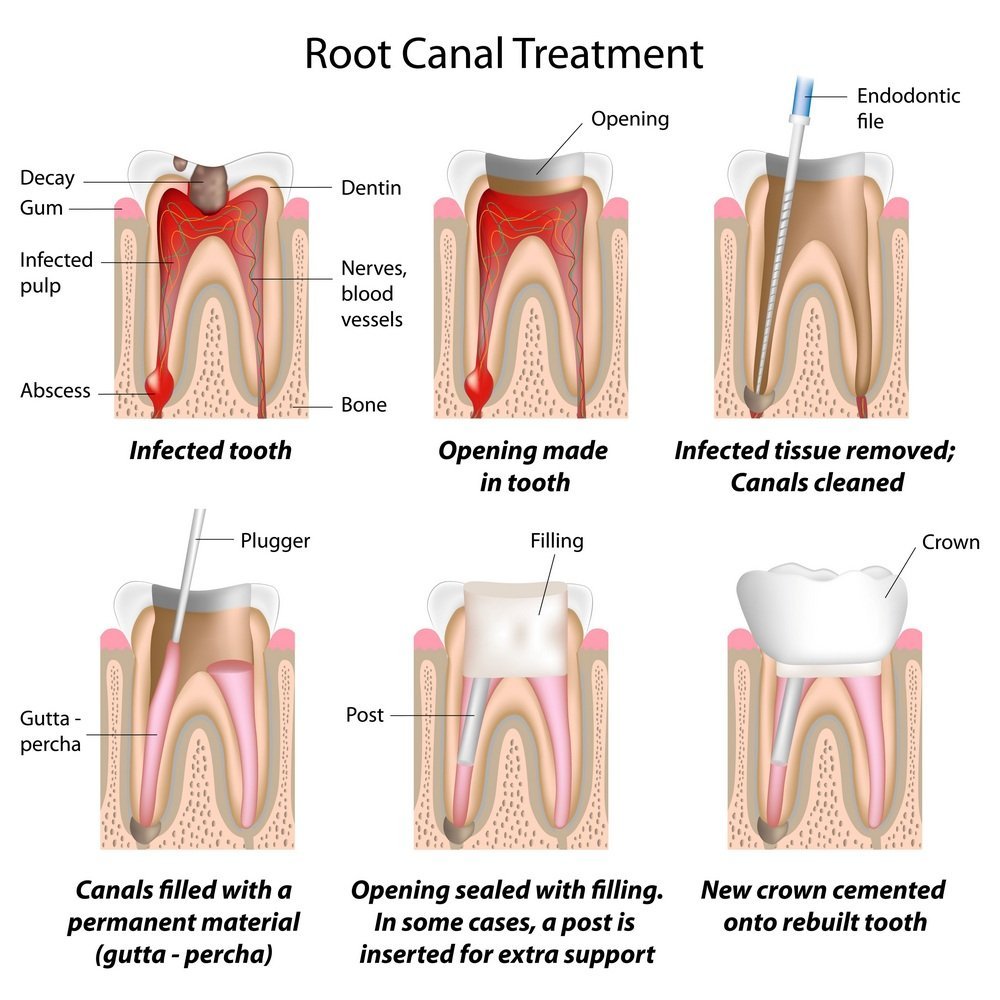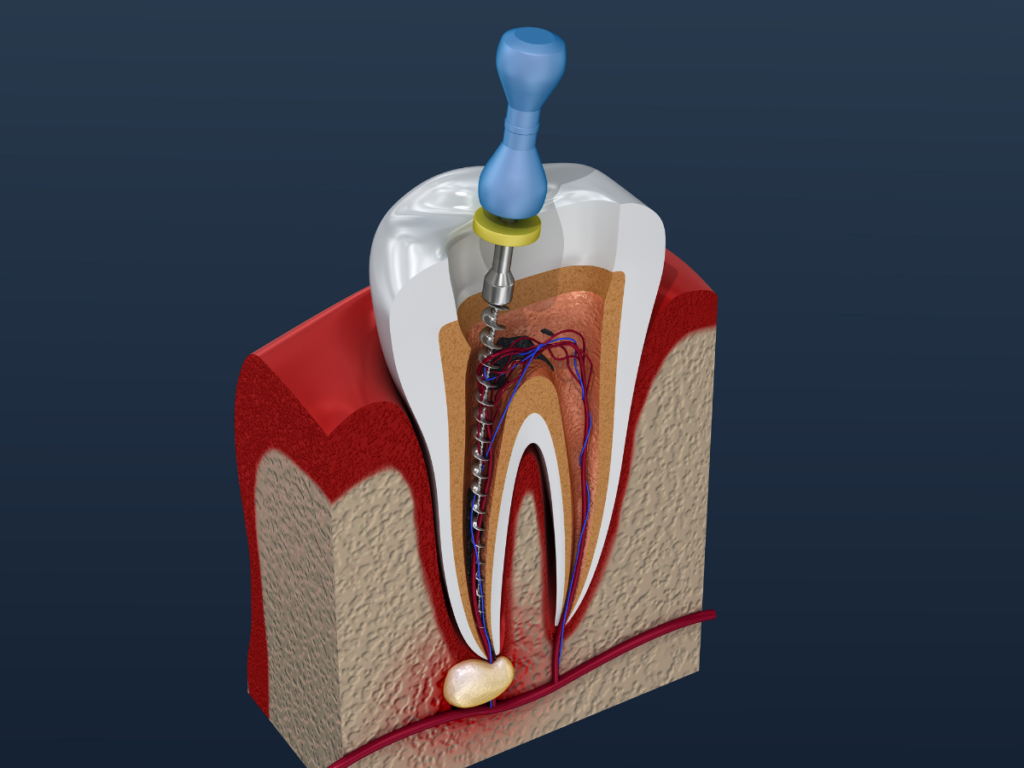Root Canal Treatment
What is a Root Canal Treatment?
Root canal treatment is designed to:
1. Eliminate bacteria from the infected root canal
2. Prevent reinfection of the tooth, and
3. Save the natural tooth.
NOTE: A“root canal” is not a treatment, but part of a tooth.
When you undergo a root canal:
- The inflamed or infected pulp is removed
- The inside of the tooth is carefully cleaned/ disinfected, and
- Then filled and sealed.
Most often root canal is done so that the patient can retain both a:
1. Functional, and
2. Cosmetic look.
Dead nerves are considered non-vital. Even then, it is possible for bacteria to accumulate in the nerve and cause an infection.
More on Root Canal Treatment
Root canal is the hollow section of a tooth that contains the:
- Nerve tissue
- Blood vessels, and Other cells (also known as the pulp).
A tooth consists of a:
1. Crown, and
2. Roots.
The crown is mainly above the gum, while the roots are below it.
The roots attach the tooth to the jawbone.
Inside the crown and the root(or the root canal) is the pulp.
The pulp nourishes the tooth and provides moisture to the surrounding material.
The nerves in the pulp sense hot and cold temperatures as pain.
Benefits of Root Canal Treatment Over Tooth Extraction
A root canal is often preferred over tooth extraction because a root canal works on fixing your natural tooth so that it can remain in place.
The Benefits include:
You get to preserve your own tooth for the next 10–15 years**
- You avoid having a missing tooth which can cause a myriad of problems
- You retain your biting capabilities,
- and Much more.
Root Canal Treatment Success:
Root canal has an extremely high success rate of 90-95% (considering treatment could be performed successfully without complications).
Note:
Root canal might not always be an option, depending on the damage that a tooth has incurred.
** Individual circumstances may vary the outcome
Frequently Asked Questions
Does a Root Canal Hurt?
You will be given anesthesia to ensure maximum comfort.
You will not feel anything when the procedure is being performed.
Note: A root canal is generally mildly sore after the procedure and may cause mild discomfort for a few days.
How Do I Know If I Need Root Canal?
Root canals are needed for a:
- Cracked tooth from injury or genetics
- A deep cavity, or
- Issues from a previous filling.
Note: Patients generally need a root canal when they notice their teeth are sensitive–particularly to hot and cold sensations.
Symptoms you might need a root canal include:
- Severe pain while chewing or biting
- Pimples/ Swelling (around the teeth) on the gums
- A chipped or cracked tooth
- Lingering sensitivity to hot or cold, even after the sensation has been removed
- Swollen or tender gums
- Deep decay or darkening of the gums
- Pain coming from a particular tooth bothering sleep at night.
- And much more.
Always: Consult with one of our highly experienced Dentists before deciding whether Root Canal Treatment is the best option for you.


